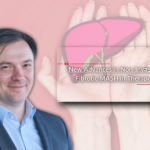
A groundbreaking study published in JCO introduces novel prognostic models leveraging transcriptomic signatures of the tumor microenvironment (TME) and cell cycle to enhance risk stratification in stage III colon cancer. Using data from the PETACC-8 and IDEA-France trials, researchers identified key markers, including T-cell and macrophage M2 signatures, CXCL13 expression, and an Oncotype-like recurrence score.
Professor Thierry André played a crucial role in this study by contributing to the provision of patient data, data analysis and interpretation, and manuscript development. His involvement was instrumental in validating these prognostic models and ensuring their clinical relevance.
The study found that high Oncotype-like and M2 scores, along with low CXCL13 expression and T-cell scores, were associated with shorter time to recurrence (TTR). The Immune Proliferative Stromal (IPS) score, developed using these transcriptomic markers, significantly improved prognostic accuracy. In the IDEA-France cohort, the three-year recurrence-free survival ranged from 56% in high-risk patients to 89% in low-risk patients, demonstrating the relevance of these models in guiding personalized treatment strategies.
This research advances risk stratification in colon cancer, with future studies expected to integrate these models with circulating tumor DNA (ctDNA) to further refine recurrence predictions.


